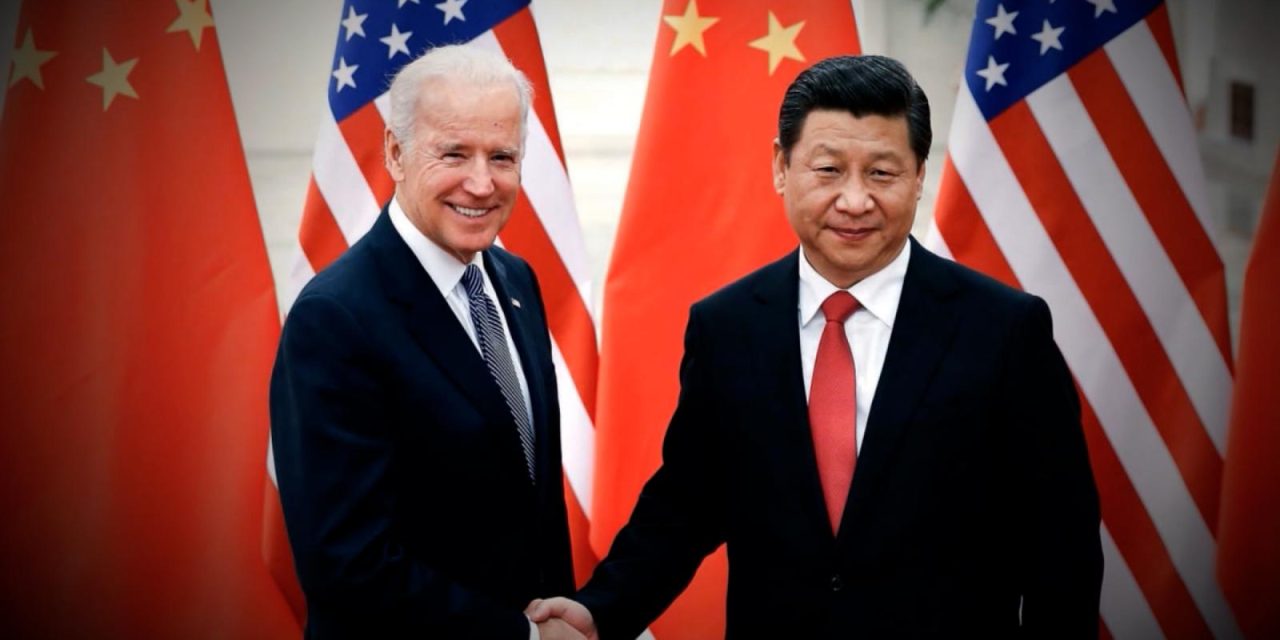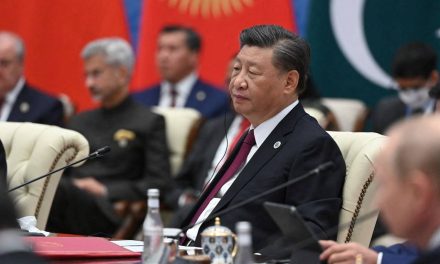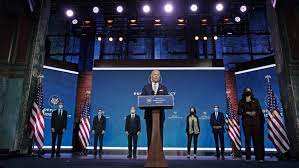BY JIANLI YANG – 10/01/21
In his recent speech to the United Nations General Assembly, President Biden aimed remarks at America’s two rival nuclear powers — and particularly China — even though he didn’t name names. He criticized China’s human rights violations and its use of sophisticated technology to surveil and control China’s population, and warned against the intrusion of authoritarianism in various countries. He pledged to defend democracy and vowed that the U.S. intends to “compete vigorously” with China but is not seeking a “new Cold War.”
Nevertheless, the theme of Biden’s speech was global unity and international cooperation, with a focus on broader borderless tests such as the climate crisis and the COVID-19 pandemic. He called on countries to join forces to cope with these crises that cross international borders — or risk precipitating a disaster that “will reverberate for generations.”
When it comes to China, Biden’s tone remains consistent with the structure of the China policy he and his team have put forth since he entered the While House — compartmentalizing the overall China policy into three areas: confrontation, competition and cooperation. In March, Secretary of State Antony Blinken remarked in a speech that the United States’s relationship with China “will be competitive when it should be, collaborative when it can be, and adversarial when it must be.”
This is easier said than done. First of all, there is no clear line to divide these three areas, no mathematical formula to follow. The Biden administration must walk a fine line to maintain a delicate balance. An even more difficult problem facing the White House is that Beijing opposes America’s “compartmentalization of issues” approach to dealing with China. John Kerry, the U.S. Special Presidential Envoy for Climate, went to China in early September seeking cooperation — only to have China’s stance reconfirmed. Chinese Foreign Minister Wang Yi told Kerry, via video link, that climate cooperation would not be possible without better overall U.S.-China relations, rejecting Blinken’s and Kerry’s calls for compartmentalization of issues.
Dealing with China is becoming increasingly difficult even on issues that unequivocally fall in the area of cooperation. It is indisputable, for example, that the world’s two major powers should collaborate on containing the COVID-19 pandemic and determining the origins of SARS-CoV-2. But since day one, China has refused to cooperate and even erected all kinds of barriers to international investigative efforts into the novel coronavirus’s origins, despite repeated requests and pressure from the United States and the rest of the international community. Instead, Beijing has responded with “wolf warrior diplomacy.” I’ve pointed out that “[back] in September 2005, when politicians, economists and other international observers were scrambling to make sense of the possibility of China’s rise, then-Deputy Secretary of State Robert Zoellick put forth a theory of China as a ‘responsible stakeholder.’ More than 15 years later, China has yet to become a responsible stakeholder. Instead, it has become the wolf lurking in everyone’s yard.”
Responding to the China threat, some in Washington have been advocating for a total decoupling with China — namely, to shut down all “areas of cooperation” altogether. However, this is unrealistic. Even during the past two years of heightened tensions between the U.S. and China, the trade volume between the two hostile nations has remained relatively stable, and has even shown signs of growth. Moreover, it would be detrimental to global welfare if the world’s two major powers — which are also the two largest economies — were unable to collaborate on issues of global concern, such as climate change and the coronavirus pandemic. Even during the peak of the Cold War, the U.S. and the Soviet Union were able to negotiate and work out deals on arms control, most notably the Anti-Ballistic Missile Treaty. Responding to the question of whether the Trump administration was seeking to “decouple” from China, then Vice President Mike Pence stated bluntly in his Oct. 24, 2019, address at the Woodrow Wilson International Center for Scholars, “The answer is a resounding ‘no.’”
The Biden administration and the preceding Trump administration both agree that decoupling from China is neither possible nor desirable — and both can be considered the most hawkish U.S. administrations toward China over the past 40 years. Kerry announced on the day following Biden’s U.N. address that he would go to China again, in his effort to seek collaboration with China.
Indeed, cooperation with China is inevitable — but it is risky because the Chinese Communist Party (CCP) can use it as leverage against the U.S., or as a way to fend off international criticism of its deplorable human rights record. Whether it is climate change, the COVID-19 pandemic, the opioid crisis, anti-terrorism, intellectual property protection, or North Korean tensions, the result could be the same. Even the United States’s overtures for “cooperation on the rule of law” became an excuse for China to further clamp down on dissidents. Therefore, considering that the U.S. has no other realistic choice but to cooperate with China, the Biden administration would be wise to observe these caveats:
- Insist on compartmentalization of issues;
- Do not place too much emphasis on changing the CCP’s behavior through cooperation alone (confront, contest and compete to change);
- Use dialogue and cooperation as necessary, but do not pursue them as ends in themselves;
- Have a robust enforcement mechanism for any deal the U.S. makes with China; and
- Do not be held hostage for concessions on other core issues.





















